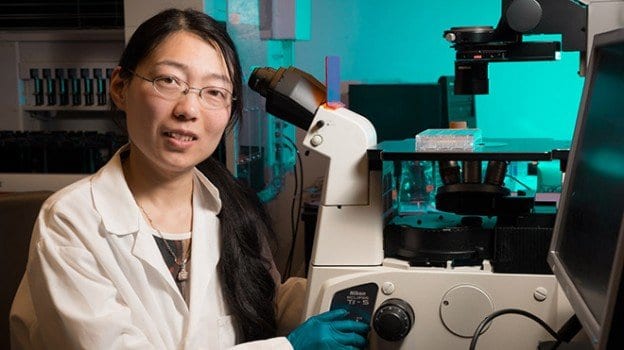Diabetic retinopathy, a leading cause in adult blindness affects more than a quarter of adults with diabetes and threatens the vision of an estimated 600,000 more in the United States. However, there may now be new treatment options available.
Dopamine-restoring drugs which are currently used to treat Parkinson’s disease may an answer where blindness happens due to diabetic retinopathy.
Diabetic retinopathy, a leading cause in adult blindness affects more than a quarter of adults with diabetes and threatens the vision of an estimated 600,000 more in the United States. However, there may now be new treatment options available as a new study shows treatment for diabetic retinopathy.
Dopamine-restoring drugs which are currently used to treat Parkinson’s disease may an answer where blindness happens due to diabetic retinopathy.
Studies have been implemented on diabetic mice to test their vision. Researchers are currently assessing mice for their ability to follow patterns of lines projected impelled around them.
Previously, doctors believed that the impairment behind retinopathy came from the damage of blood vessels due to high blood sugar spikes and they also knew that dopamine was important to the retina since it’s a vital neurotransmitter in the brain. However,Machelle Pardue, PhD, associate professor of ophthalmology at Emory University School of Medicine and research career scientist at the Atlanta VA Medical Center has this to say on the matter, “There was some evidence already that dopamine levels were reduced in diabetic retinopathy, but what’s new here is: we can restore dopamine levels and improve visual function in an animal model of diabetes.”
MD/PhD student Moe Aung and senior authors of this study, Pardue and P. Michael Iuvone, PhD, professor of ophthalmology and pharmacology and director of vision research at Emory Eye Center, examined diabetic mice, treating them with streptozocin which is lethal to insulin-producing cells in the pancreas. By injecting the mince with L-DOPA, a common drug to treat Parkinson’s disease, once they had received streptozocian, researchers found that visual problems seized by weeks and lessened the severity of visual defects. It was also found that the visual benefits of L-DOPA derived from the retinas, which was measured by electroretinography.
The tests to assess vision was created when mice were placed on a platform and measured for their ability to move their heads in response to a rotating pattern of vertical lines, which were projected on a cylinder around the mouse.
Iuvone states, “This is important because it shows that treatments targeting dopamine could be beneficial to patients with established diabetes. It should be straightforward to try L-DOPA or dopamine receptor agonist treatment in adults, although L-DOPA could have complications in children. Bromocriptine, a dopamine receptor agonist, is already FDA-approved to treat type 2 diabetes. It will be important to determine if the same dopamine receptors modulate acuity and contrast sensitivity in humans.”









